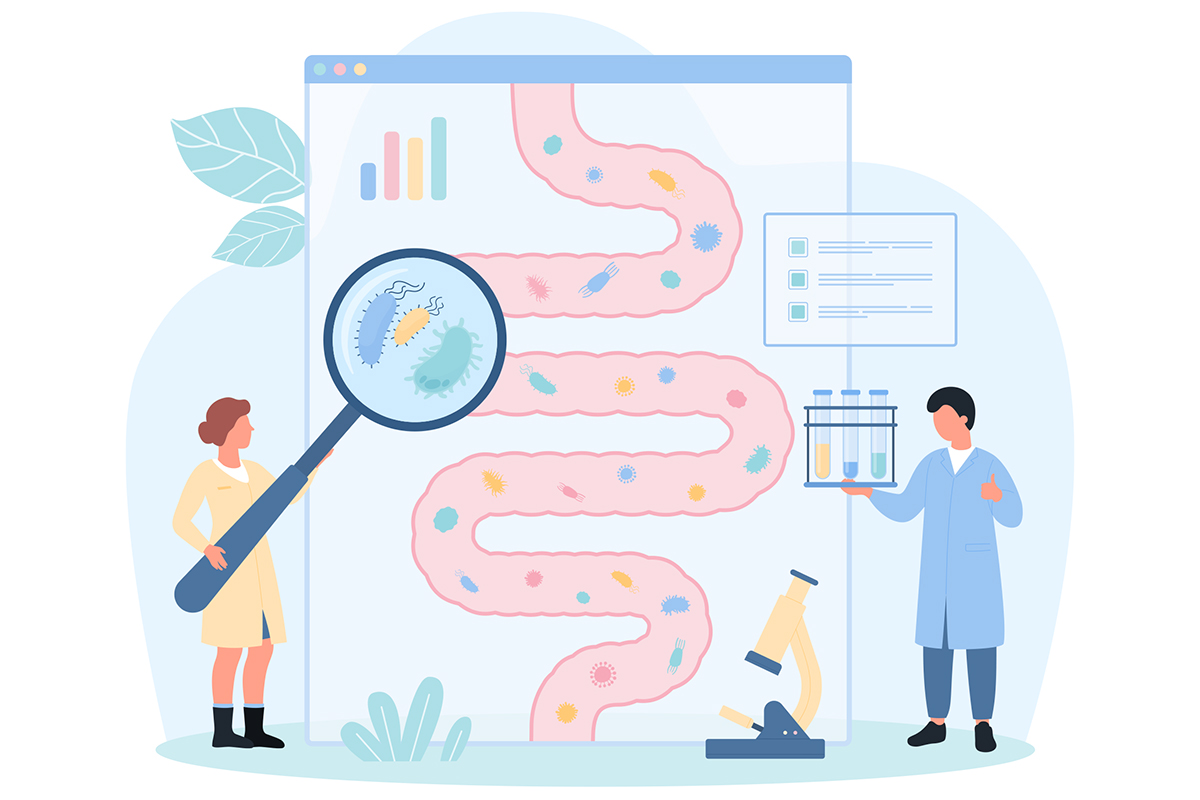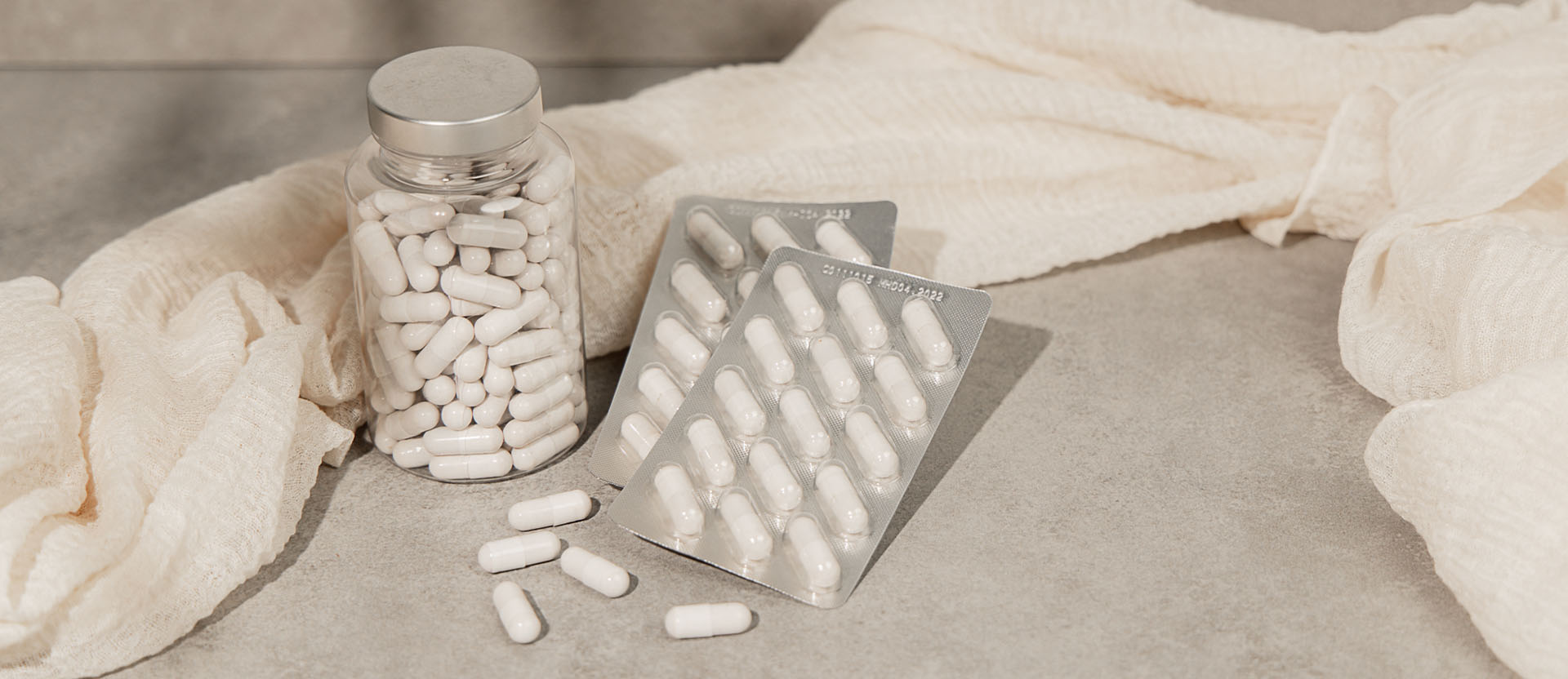Ingredients | Trends |
Prebiotics, probiotics
& postbiotics
We give you an insight
As we mentioned in our last article, a healthy gut is the foundation for well-being. It not only supports digestion, but also influences your immune system, your skin health and even your mood. In addition to a balanced diet, special bioactive substances play a key role here: prebiotics, probiotics and, more recently, postbiotics. In this article, you will find out what these terms mean, how they interact - and what potential they offer for your products.
Probiotics: The "good" bacteria
Probiotics are living microorganisms which, when ingested in sufficient quantities, can have positive effects on the intestinal flora. The best-known representatives include lactobacilli, bifidobacteria and certain yeast strains. These beneficial bacteria are found in fermented foods such as yogurt, kefir or sauerkraut. They are also popular in food supplements - but their processing requires special care, as live cultures are sensitive to heat, stomach acid and storage conditions. In Germany, however, "probiotics" may not be advertised in relation to foodstuffs, as this is regarded as an inadmissible health claim.

Popular probiotics in food supplements
- Lactobacillus rhamnosus:
Supposed to support the immune system & have a positive effect on digestion - Bifidobacterium lactis:
Supposed to promote healthy gut flora & improved stool consistency - Lactobacillus plantarum:
Supposed to support the intestinal barrier & have antioxidant properties - Saccharomyces boulardii:
Yeast fungus, which is also often used in the first-aid kit - Bifidobacterium longum:
Supposed to support the gut-brain axis & emotional balance
Prebiotics: What are they actually?
In contrast to probiotics, prebiotics are not living microorganisms, but indigestible food components, usually special dietary fibres or carbohydrates such as inulin, oligofructose or lactulose. They serve as food for beneficial intestinal bacteria and promote their growth. Prebiotics are found naturally in foods such as onions, garlic, asparagus and bananas.


Important prebiotics in food supplements
- Chicory inulin:
Contributes to normal bowel function by increasing stool frequency (with an intake of at least 12 g) - Fructooligosaccharides (FOS):
Mild taste, often in combination with probiotics - Galactooligosaccharides (GOS):
Promotes bifidobacteria in particular & is well tolerated - Lactulose:
Lowers the pH value in the intestine - Barley grain, oat grain fiber & sugar beet fiber:
Contribute to an increase in stool volume (with at least 6 g of fiber per 100 g of product) - Rye fiber:
Contributes to normal bowel function (with at least 6 g of fiber per 100 g of product) - Wheat bran:
Contributes to accelerating intestinal transit and increasing stool volume (with at least 6 g of fiber per 100 g of product)
Synbiotics: The best of both worlds
If pro- and prebiotics are combined in one product, they are referred to as synbiotics.
This combination is said to have a synergistic effect: While the probiotics colonize the intestine with beneficial microorganisms, the prebiotics simultaneously promote their growth. Such mixtures can be implemented in capsules or sticks, for example - often supplemented with vitamins with approved health claims.
Postbiotics: The new generation
for gut health
Postbiotics are still a relatively new concept in the field of gut health. These are inactive bacteria or their metabolic products that are produced during the fermentation of prebiotics by probiotics. Unlike probiotics, postbiotics are not living microorganisms - and that is precisely what makes them so exciting. They are more stable, have a longer shelf life and are less sensitive to external influences such as heat or stomach acid.
Postbiotics are currently the focus of research because they are said to have a variety of effects on the intestinal flora, the immune system and inflammatory processes. Even though no health claims have yet been approved for postbiotics in the EU - as is the case with probiotics and many prebiotics - their use is considered a promising future trend.
We conducted an interview with the manufacturer SynBalance on this topic. Take a look to find out more!
What will be your next product?
The market for pre-, pro- and postbiotics is growing. More and more companies are expanding their portfolio to include innovative products for intestinal health - whether for immune support, healthy digestion, mental balance or healthy ageing.
Product development in this area is extremely diverse: whether combinations with vitamins C & D for the immune system, B vitamins for nerves & psyche or micronutrients (e.g. calcium, magnesium, manganese, phosphorus, ...) for healthy bones - the possibilities are almost limitless. Especially dosage forms such as flavored powders in sachets make the products attractive and convenient for consumers.
Would you like to develop an innovative supplement containing pro-, pre- or postbiotics? We support you with in-depth expertise, modern technology and individual concepts - from the initial idea to the market-ready product.

